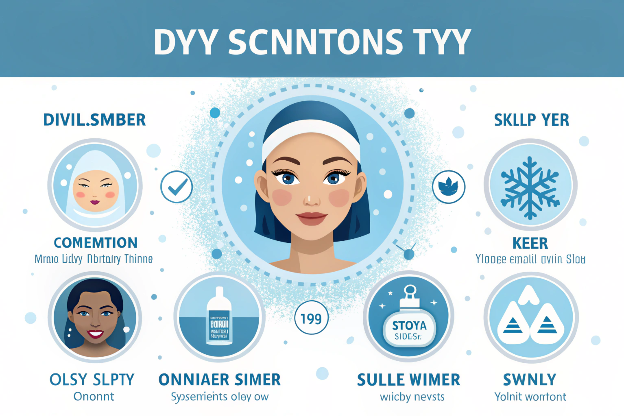
Introduction
In today’s fast-paced world, it’s easy to fall into unhealthy eating habits. With busy schedules and access to an abundance of processed foods, making nutritious choices can be challenging. However, a Balanced Diet Plan is essential for maintaining overall health and well-being.
A well-crafted diet plan can help you achieve your health goals, whether you’re aiming to lose weight, gain muscle, or simply improve your overall health.
Understanding the Importance of a Balanced Diet Plan
A Balanced Diet: The Foundation of a Healthy Body
A balanced diet provides your body with the essential nutrients it needs to function properly, much like an automobile requires a variety of fuels and lubricants to operate smoothly and efficiently.
These nutrients, including carbohydrates, protein, fats, vitamins, and minerals, serve as the building blocks for maintaining your energy levels, supporting your immune system, and promoting healthy growth and development.
Carbohydrates: The Body’s Fuel Source
Carbohydrates, often misunderstood as the culprits behind weight gain, are the primary energy source for your body. They are found in a variety of foods, including grains, fruits, vegetables, and legumes.
Carbohydrates are broken down into glucose, which is then transported throughout the body to provide the fuel needed for various bodily functions, including muscle contractions, brain activity, and cellular processes.
Protein: The Building Blocks of Life
Protein is another essential nutrient that plays a crucial role in maintaining your body’s structure and function. It is composed of amino acids, which are the building blocks of tissues, muscles, enzymes, hormones, and other vital components of the body.
Protein is particularly important for growth and development, as well as for repairing and maintaining tissues after injury or wear and tear.
Fats: Not the Enemy, but Essential Partners
Fats, often demonized as the villains in the diet world, are actually essential nutrients that serve a variety of important functions. They provide a concentrated source of energy, aid in the absorption of fat-soluble vitamins, and contribute to the structure of cell membranes.
Healthy fats, such as those found in avocados, nuts, seeds, and olive oil, play a vital role in maintaining heart health, brain function, and overall well-being.
Vitamins: The Micronutrient Powerhouses for Balanced Diet Plan
Vitamins, though required in smaller amounts compared to macronutrients like carbohydrates, protein, and fats, are essential for various bodily functions.
They act as coenzymes, facilitating biochemical reactions, and play a crucial role in maintaining vision, immunity, blood clotting, and other vital processes.

Minerals: The Building Blocks of a Strong Foundation
Minerals, such as calcium, iron, zinc, and magnesium, are the inorganic components of the body that provide structural support and regulate various bodily functions. Calcium is essential for bone health, while iron is crucial for carrying oxygen in the blood.
Zinc plays a role in immune function and wound healing, while magnesium is involved in muscle and nerve function.
A Symphony of Nutrients for a Healthy Body
Just as an orchestra relies on a harmonious blend of instruments to create a beautiful melody, a balanced diet relies on a symphony of nutrients to support a healthy body. Each nutrient plays a distinct yet interconnected role in maintaining your overall well-being.
By using a Balanced Diet Plan ensur that your diet provides an adequate supply of these essential nutrients, you can empower your body to function at its best and achieve your health goals.
The Five Food Groups: A Comprehensive Guide to a Nutritious Diet
A balanced diet, the cornerstone of a healthy lifestyle, encompasses a diverse array of foods from all five food groups: fruits, vegetables, grains, protein, and dairy.
Each group provides a unique set of nutrients that are essential for maintaining optimal health and well-being.
Fruits: Nature’s Sweet and Nutritious Bounty
Fruits, nature’s candy, are a rich source of vitamins, minerals, and fiber, all of which play crucial roles in promoting good health. Vitamin C, abundant in citrus fruits, berries, and kiwis, strengthens the immune system and fights against free radicals.
Potassium, found in bananas, avocados, and cantaloupes, regulates blood pressure and muscle function. Fiber, plentiful in apples, pears, and prunes, aids digestion, prevents constipation, and promotes satiety.
Vegetables: Powerhouses of Essential Nutrients
Vegetables, the unsung heroes of the culinary world, are nutritional powerhouses that supply a wealth of vitamins, minerals, and antioxidants. Vitamin A, prevalent in carrots, sweet potatoes, and spinach, is vital for vision and immune system health.
Vitamin C, abundant in bell peppers, broccoli, and kale, protects against cellular damage and boosts immunity. Potassium, found in tomatoes, potatoes, and mushrooms, maintains healthy blood pressure. Folate, rich in leafy green vegetables, is essential for DNA synthesis and fetal development.
Grains: The Energy-Providing Backbone of the Diet
Grains, the foundation of many cultures’ cuisines, provide the body with essential carbohydrates, fiber, and vitamins and minerals. Carbohydrates, the body’s primary energy source, are abundant in whole grains such as brown rice, quinoa, and oats.
Fiber, plentiful in whole grains, promotes digestive health, prevents constipation, and regulates blood sugar levels. B vitamins, found in fortified grains, are crucial for energy production and brain function. Iron, essential for oxygen transport, is rich in whole grains.
Protein: The Building Blocks of the Body
Protein, the body’s structural scaffold, is crucial for building and repairing tissues, producing hormones, and supporting muscle function. Lean protein sources, such as chicken, fish, beans, lentils, and tofu, provide essential amino acids, the building blocks of protein.
Chicken, rich in protein and low in fat, supports muscle growth and repair. Fish, a rich source of omega-3 fatty acids, promotes heart health and brain function. Beans and lentils, plant-based protein powerhouses, are high in fiber and essential nutrients. Tofu, a versatile soy protein, is a good source of iron and calcium.
Dairy: A Symphony of Calcium, Vitamin D, and Protein
Dairy products, nature’s gift of calcium, vitamin D, and protein, are essential for bone health and overall well-being. Calcium, abundant in milk, yogurt, and cheese, strengthens bones and teeth and prevents osteoporosis.
Vitamin D, found in fortified dairy products, aids calcium absorption and promotes immune function. Protein, plentiful in dairy products, supports muscle growth and repair. Low-fat or fat-free dairy options, such as skim milk, low-fat yogurt, and reduced-fat cheese, provide the same nutritional benefits with fewer calories.
A Tapestry of Nutrients for a Vibrant Life for Balanced Diet Plan
By incorporating a variety of foods from all five food groups, individuals can create a balanced diet that provides a symphony of nutrients essential for optimal health and well-being. Fruits, vegetables, grains, protein, and dairy, each playing a unique and interconnected role, contribute to a vibrant and healthy life.
Crafting a Customized Diet Plan: A Journey to Optimal Health
A successful diet plan is not a one-size-fits-all solution; it’s an individualized roadmap to achieving your health and wellness goals. To craft a plan that aligns with your unique needs and preferences, consider the following key factors:
1. Understanding Your Calorie Requirements for Balanced Diet Plan:
Your calorie needs, the foundation of your diet plan, are determined by a combination of factors, including your age, sex, activity level, and current weight.
An accurate assessment of your calorie needs is crucial for ensuring that your diet provides adequate energy for your daily activities and supports your weight management goals.
Utilizing online calorie calculators or consulting a registered dietitian can help you determine your specific calorie requirements.
2. Setting Realistic and Achievable Goals with Balanced Diet Plan:
Dramatic and overnight changes in your diet are often unsustainable and can lead to feelings of deprivation and discouragement. Instead, opt for setting realistic and achievable goals that you can gradually build upon.
Start by identifying small, incremental changes that align with your overall health objectives. For instance, aim to increase your intake of fruits and vegetables or reduce your consumption of sugary drinks. As you achieve these initial goals, you can gradually set more ambitious targets.
3. Prioritizing Whole, Unprocessed Foods:
The cornerstone of a healthy diet is a foundation of whole, unprocessed foods. These nutrient-dense foods, such as fruits, vegetables, whole grains, lean proteins, and healthy fats, provide your body with the essential vitamins, minerals, and fiber it needs to function optimally.
By focusing on incorporating these wholesome foods into your meals and snacks, you can crowd out processed foods that are often high in added sugars, unhealthy fats, and sodium.
4. Embracing Balanced Diet Plan:
Meal planning, a proactive approach to managing your food choices, can significantly enhance your dietary success.
By dedicating time each week to plan your meals, you can make informed decisions about what you’re going to eat, ensuring that you’re selecting nutritious and satisfying options.
Meal planning also helps you avoid last-minute unhealthy choices and reduces food waste.
5. Practicing Portion Control:
Portion control, a crucial aspect of weight management, involves being mindful of the amount of food you consume. While you may be eating healthy foods, overindulgence can still lead to weight gain.
Utilizing smaller plates and bowls, measuring portion sizes, and avoiding distractions while eating can help you practice mindful eating and maintain healthy portion control.
6. Gradual Introduction of New Habits:
Introducing new foods and habits into your routine requires patience and gradual implementation. Instead of overhauling your entire diet overnight, focus on incorporating small changes one at a time.
This approach allows you to adapt to new habits more effectively and increases the likelihood of long-term adherence.
7. Allowing Occasional Indulgences:
Depriving yourself of the foods you enjoy can lead to cravings and feelings of dissatisfaction, potentially hindering your long-term adherence to your diet plan. Instead, incorporate occasional indulgences into your plan. This allows you to satisfy your cravings without derailing your overall health goals.
Remember, creating a successful diet plan is a journey of self-discovery and continuous improvement. By understanding your individual needs, setting realistic goals, making informed food choices, and practicing mindful eating habits, you can empower yourself to achieve your health and wellness objectives and cultivate a lifelong relationship with balanced and nutritious eating.
Nurturing Long-Term Success with Your Balanced Diet Plan
Just as a sturdy foundation supports a flourishing building, a sustainable approach anchors a successful diet plan. By incorporating these practical tips into your daily routine, you can transform your diet from a temporary endeavor into a lifelong commitment to healthy living:
Seek the Support of a Food Tribe in your Balanced Diet Plan:
Surround yourself with individuals who share your passion for healthy eating. Join online forums, attend cooking classes, or connect with friends and family who also prioritize their well-being.
The encouragement and camaraderie of like-minded individuals can provide invaluable motivation and support throughout your journey.
Embrace the Joy of Cooking:
Cooking at home empowers you to take control of your ingredients and portion sizes. Experiment with new recipes, explore diverse cuisines, and discover the satisfaction of creating nourishing meals from scratch.
By taking ownership of your culinary creations, you’ll foster a deeper appreciation for the food you consume.
Make Healthy Swaps, Not Sacrifices:
Instead of feeling deprived of your favorite snacks, make healthy substitutions that still satisfy your cravings.
Replace sugary treats with fresh fruits, swap processed snacks for nuts or yogurt, and opt for whole-grain crackers instead of refined options.
These mindful swaps allow you to indulge in flavors without compromising your health goals.
Plan Ahead for Weekend Success:
Don’t let the carefree atmosphere of weekends derail your healthy habits. Take time each week to plan meals and snacks for the upcoming days.
Prepare healthy snacks in advance, pack nutritious lunches for work or school, and plan activities that encourage physical activity.
By proactively planning for weekends, you can maintain consistency and avoid unhealthy temptations.
Embrace the Power of Tracking:
Monitoring your progress can provide valuable insights into your eating habits and help you stay motivated. Utilize food diaries, calorie-tracking apps, or simple notes to record your daily food intake.
By tracking your progress, you can identify areas for improvement and celebrate your achievements along the way.
View Setbacks as Stepping Stones:
Setbacks are inevitable on the path to achieving your health goals. Instead of dwelling on occasional missteps, view them as learning opportunities. Practice self-compassion, forgive yourself, and recommit to your journey. Resilience and adaptability are key ingredients for long-term success.
Remember, a sustainable diet plan is not about rigid restrictions or short-term fixes; it’s about cultivating a mindful approach to eating that aligns with your lifestyle and preferences. By embracing these tips, you can transform your diet into a source of nourishment, enjoyment, and long-lasting health.
Conclusion:
A balanced diet plan, meticulously crafted to suit your individual needs and preferences, is not merely a temporary solution but a lifelong investment in your overall health and well-being.
By adhering to the guidelines outlined in this guide and incorporating gradual, sustainable changes into your daily routine, you can unlock a world of possibilities, transforming your relationship with food and unlocking a path towards achieving your health aspirations.
Embark on this journey with a mindset that embraces moderation and flexibility. Understand that setbacks are not failures but stepping stones on the path to progress. Embrace the joy of cooking, explore new flavors and cuisines, and discover the satisfaction of nurturing your body with nourishing, wholesome foods.
Remember, consistency is the cornerstone of success. By persistently making informed food choices, practicing portion control, and incorporating regular physical activity into your lifestyle, you can cultivate a healthier, happier life, one balanced meal at a time. Empower yourself to become the architect of your well-being, and embark on a journey towards a life enriched by vitality and nourished by the power of a balanced and wholesome diet.





